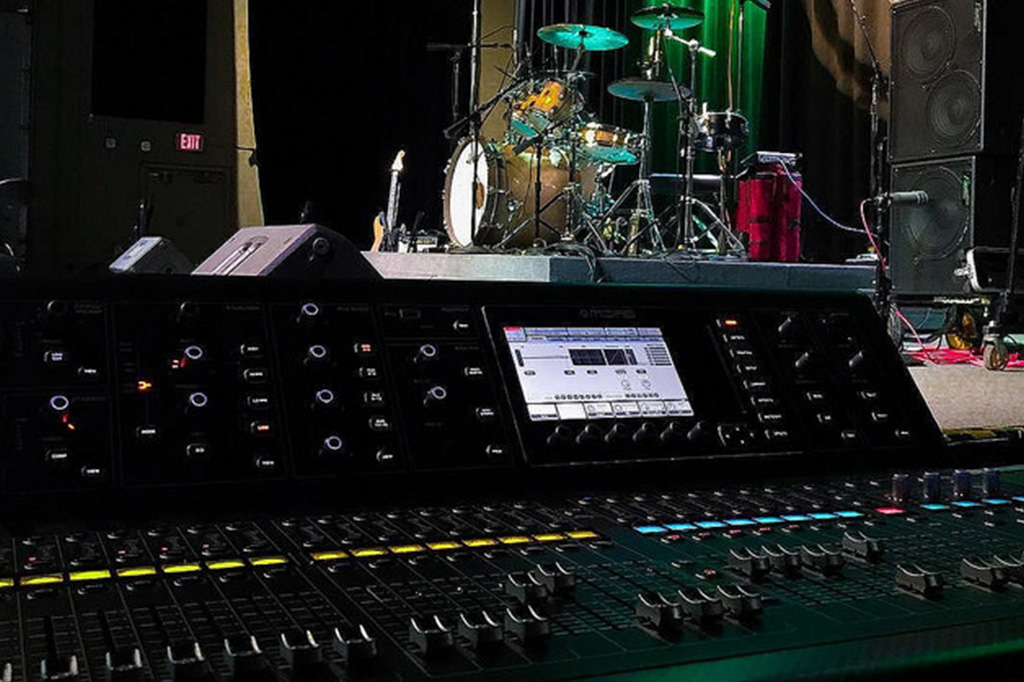A Day in the Life of an Audio Engineer

We have all been there… daydreaming of becoming famous in the Music Industry. We all wonder what it would be like to wake up in Elton John, Adele or Jay Z’s shoes. However, what we don’t think about is the constant support that every artist gets from Audio Engineers. Without Audio Engineers the music that artists play would not be presentable, causing no airplay which, in return, leads these artists to be unknown. Why? Simply put, Audio Engineers are the fine balance of technological mavens with the ability of being creative. The Audio Engineer is the expert that knows how to cull the perfect sound for the artist’s sonic vision. So, as most are likely to fantasize on what it would be like to be a famous musician, let’s focus on being one of the creative geniuses behind musical hits… an Audio Engineer.
When it comes to Music, Film, Television, Live Sound Reinforcement, and Broadcasting Audio Engineers have a diverse set of jobs and applied skills. Their day is defined and laid out through recording, editing, mixing and production. Let’s take a peek at each of these components!
Setting Up: Creating an “environment” is not usually seen as part of an Audio Engineering job, but it is a critical one. Audio Engineers are constantly trying to create an environment that puts artists at ease, while creating an invisibility of the technology required to successfully accomplish the goal of capturing the client’s intent. Setting up a studio means allowing enough space for instruments and microphones as well as area for musicians to feel comfortable and be able move around in. The studio needs to have the necessary equipment that will perfect the sounds of the musicians. And when it comes to equipment an Audio Engineer needs to know their tools like the back of their hand.
This is true of all situations in “audio.” Consider a Broadcast truck spilling audio to millions of viewers. Or a concert ready to go on. Or every trigger pull in your video game. Every audio situation requires “setup,” not only technologically but a physical sanctuary for the client!
Recording: At this time an Audio Engineer must place their focus on both the music and technical aspects of the audio session. The Audio Engineer adjusts equipment in the studio to make sure all the instruments that are being used sound great as well as making sure an artist’s voice is being heard and represented. This is very difficult, as the Audio Engineer has to balance art and science, simultaneously.
If there is a singer in the song, their voice has to be seen as both a musical instrument and as a personality. As an Audio Engineer, you have the task to change the tone, diction and/or rhythm of a voice. Having such a dynamic role in a singer’s voice can become very personal. Because of this, an Audio Engineer needs to have a rapport and relationship with the artist in order for the artist to feel confident and acknowledge the suggestions of the audio engineer. Thus, audio engineers must be confident in themselves as well as having a great personality.
Editing: Editing for most audio engineers is the most daunting task, but this process also allows a ton of creativity! One completely becomes engulfed in the sound and songs they are editing. During this stage of an Audio Engineer’s job they listen to many “takes,” over and over again, and place the best parts of each take and create a complete song. Audio engineers understand that the songs they are working on will be played loud and the listeners will pick up on any imperfection, so they painstakingly focus on editing “out” what is not audibly needed, and the listener is none the wiser.
Mixing: Mixing recordings is a lot like baking. You need the right amount of each ingredient in order to make something that tastes good. Adding too much of one ingredient can disrupt the whole flavor profile, leading what you baked to be inedible. As an Audio Engineer, one’s role is to combine all aspects of the song into one sound. To do this there needs to be a representation of all the instruments and voices that took part in the song, as well as not having one sound completely override or overpower the others. Taking all of the recorded “tracks,” and creating a delicate musical balance is not as easy as it sounds, but it is highly rewarding end result, when done well.
Simply stated, it is the Audio Engineer’s job to find the most important elements of the song and place emphasis and structure to these elements. It becomes a balancing act, where all aspects of a song need to be in perfect harmony with one another in order to be a great song.
Mixing is not for the novice. Though one might hear the elements of the song, they might not be actually “listening.” Listening takes time and practice. With not having the ability to actually listen to a song leads sounds to become cluttered and scattered. This causes the song to be unstructured and messy. And as an Audio Engineer, one understands that each individual sound has a prominent spot and a distinctive volume in the track.
Again, seemingly, these statements suggest that Audio Engineers spend all of their time working with musicians and artists in movie-like recording studios, but everything you’ll read here is also applicable in every discipline of Professional Audio.
Creating Relationships: An Audio Engineer’s success is not made solely through music, and juggling audio, but also through the relationships they create and maintain. It is important to know that this is a completely social job that’s livelihood depends on personalities as well as audio engineers perfecting the art of recording, editing and mixing. In this audio world, it’s all about networking!!!
As incredible as it sounds, many Audio Engineers have navigated the width of the Audio Industry by way of having their name passed around by previous clients! It really is an exciting life, when one day YOU can be in a recording studio, and the next be getting ready to embark on a world tour!
Though the list above are a few aspects of an Audio Engineer’s job, it is still a small representation of their day to day life. Their jobs have different dynamics, especially with all the fields that Audio Engineers take a part of. Their job is too often defined by being technicians in music… someone who simply just “hits buttons,” but one has to argue with this definition. Audio Engineers are “artists” in their own right. They are the ones that create a vision into reality. They act as a funnel that gathers all of the magic pouring out of the talent and puts it into one structure. They turn simple sounds into complex tracks. They combine fragments into whole entities. They build a relationship between the musicians and audience.
Now that you have a little insight, feel free to contact us here at The Conservatory of Recording Arts and Sciences at cras.edu, or at (800)562-6383, so that we can CONNECT YOU TO YOUR DREAM in Professional Audio!


























